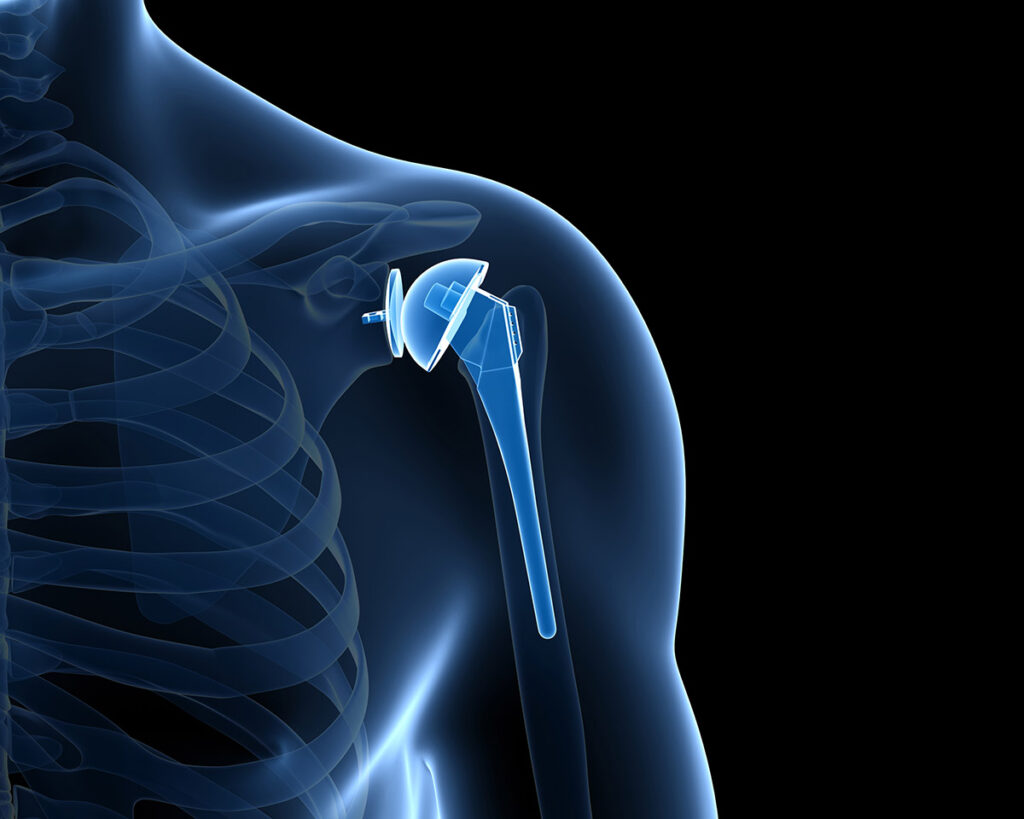

Shoulder Arthroplasty
GENERAL INFORMATION
Shoulder arthroplasty is a type of joint replacement surgery that removes damaged areas of bone and replaces them with metal and plastic implants. Also known as shoulder replacement surgery, there are three types performed that are aimed at relieving pain and restoring range of motion.
To help educate patients who may need shoulder arthroplasty, in this article, we will discuss the types of shoulder replacements and what one can expect before, during and after the surgery.
Why Shoulder Replacement Surgery is Performed
Shoulder replacement surgery is performed in order to relieve pain for the patient. Some of the conditions that cause damage to the shoulder include:
Rotator cuff injuries: A group of muscles and tendons that surround the shoulder joint, that when injured, can be very painful and damage the cartilage and bone in the joint.
Fractures: If a fracture occurs at the upper end of the humerus then a joint replacement surgery may be needed.
Osteoarthritis: Also known as the wear-and-tear arthritis, this disease damages the cartilage that covers the ends of bones which helps joints to move smoothly.
Rheumatoid arthritis: This is caused by an overactive immune system that creates inflammation that can damage the cartilage and, sometimes, the underlying bone in the joint.
Osteonecrosis: This is when a bone is starved of blood, caused by shoulder conditions that disrupt the flow of blood to the humerus.
Types of Shoulder Replacement Surgeries
The type of surgery required depends on the type of joint damage the patient has. An orthopaedic surgeon may recommend one of the following shoulder replacement surgeries:
Reverse Total Shoulder Replacement
This type of surgery replaces both the ball and the socket in the shoulder, but the implants are reversed. The ball is attached to the shoulder blade while the socket is attached to the upper arm bone. The reverse shoulder replacement surgery is the preferred option when the rotator cuff is severely damaged.
Anatomic Shoulder Replacement
This kind of shoulder arthroplasty requires the ball and the socket to be replaced by implants that resemble the natural shape of the bones.
Partial Shoulder Replacement
For this shoulder joint replacement surgery, only the ball or head of the joint is replaced, and is usually recommended only if the ball side of the joint is damaged.
Shoulder Surgery Overview
To have surgery for shoulder replacement, no matter the type, your primary care provider will evaluate you before referring you to an orthopaedic surgeon for further examination. The orthopaedic surgeon will look over your symptoms and perform a physical exam that might include X-rays and computerized tomography of your shoulder to determine if you need a shoulder replacement, as well as what kind of shoulder surgery.
Preparing for Shoulder Surgery
The orthopaedic surgeon might require clearances from your primary care physician to determine that you are healthy enough for the surgery and will make a safe and complete recovery. Your surgeon will note any other chronic medical conditions that may affect the surgery or recovery, discuss medications being taken, and have a conversation about home planning.
Before the surgery itself, you’ll meet with your provider to discuss the anesthesia, what to expect, and answer any questions you may have.
Shoulder Procedure
The specific surgical techniques used will depend on the type of procedure your orthopaedic surgeon recommends. Generally, the techniques used in shoulder arthroplasty are minimally invasive, requiring fewer incisions which allows for a shorter recovery time.
After the damaged joint has been removed, the orthopaedic surgeon will place the artificial prosthesis before using stitches, staples, or surgical glue to close the incision and bandage the area. Depending on the type of joint replacement arthroplasty performed, you may need to wear a brace or sling during recovery.
At Proliance Puget Sound Orthopaedics, we provide best-in-class orthopedic care to our community with compassion, caring, and dedicated expertise for shoulder arthroplasty. If you’re suffering from any of the symptoms listed previously or need treatment for joint pain, we encourage you to call (253) 830 – 5200 or request an appointment online to see one of our physicians.

